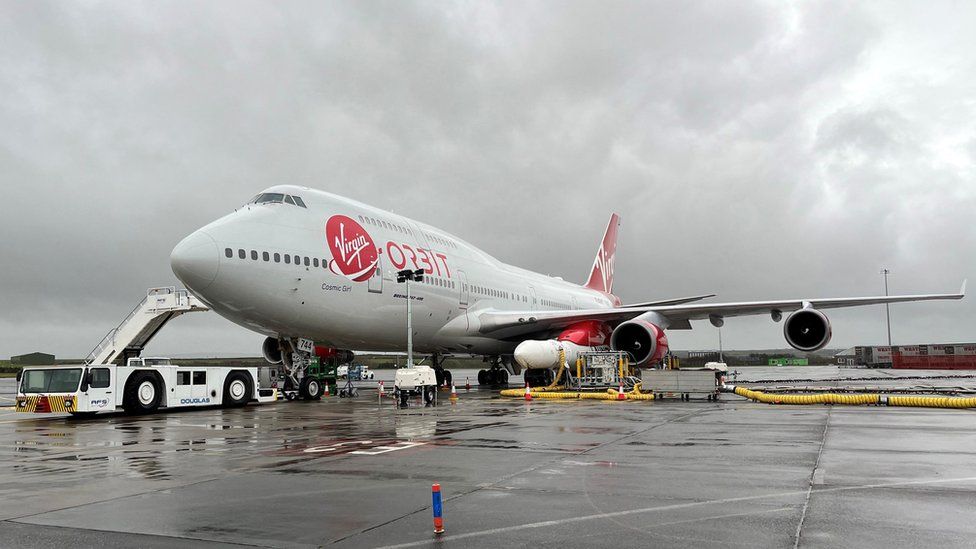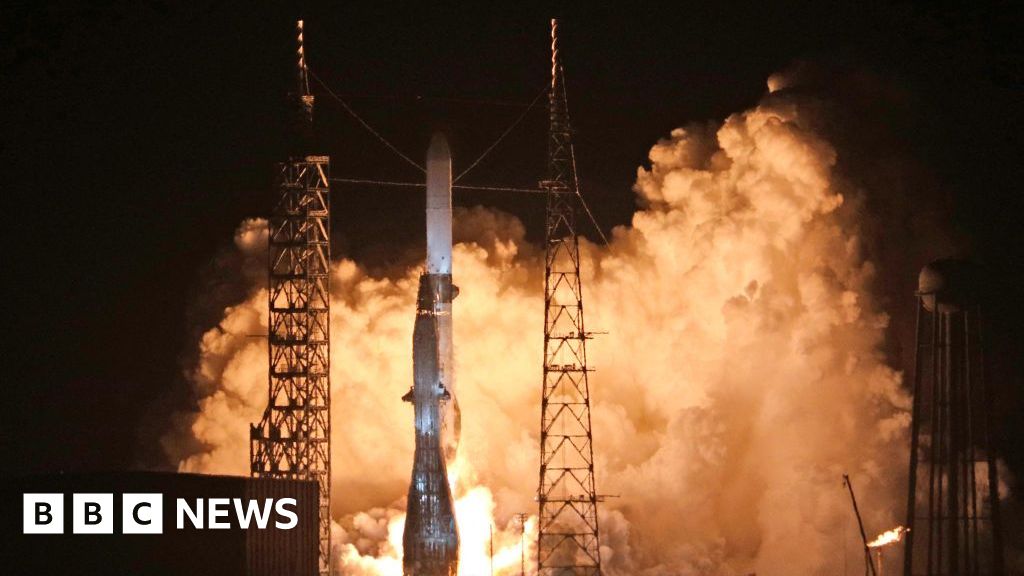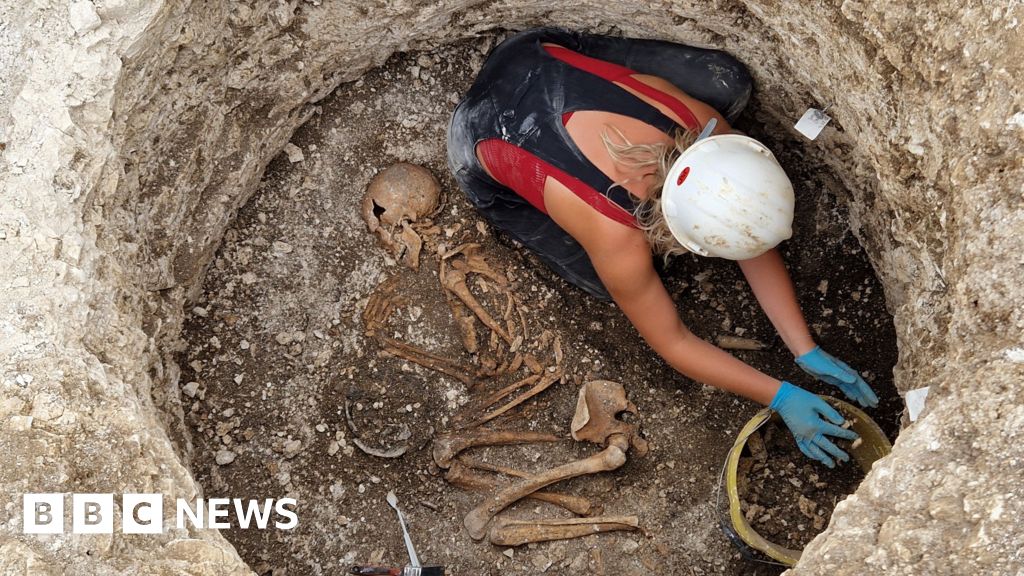ARTICLE AD BOX
 Image source, Reuters
Image source, Reuters
Using a plane to carry a rocket part way into the sky is termed a "horizontal launch system"
By Rebecca Morelle and Jonathan Amos
BBC News Climate and Science
The first ever orbital space launch from British soil is getting ready to blast off.
Monday's mission will see a repurposed 747 jumbo jet release a rocket over the Atlantic to take nine satellites high above the Earth.
Newquay Airport in Cornwall is the starting point for the operation, shortly before midnight GMT
If it succeeds, it will be a major milestone for UK space, marking the birth of a home-grown launch industry.
"What we've seen over the last eight years is this building of excitement towards something very aspirational and different for Cornwall, something that started off as a project that not a lot of people really believed was ever going to happen," said Melissa Thorpe, who heads up Spaceport Cornwall.
"What I think people have seen here in Cornwall is a small team that lives and breathes this county deliver something quite incredible."
This first foray into orbital launch from UK territory is actually using an American company, Virgin Orbit, that was founded by Sir Richard Branson.
The British entrepreneur has had one of his old passenger airliners converted to carry a rocket, called LauncherOne, underneath its left wing.
When the 747 leaves Newquay, it will head west out over the Atlantic to a designated launch zone just off the coast of the Irish counties of Kerry and Cork.
At the appropriate moment and at an altitude of 35,000ft, the Virgin jet will release the rocket, which will then ignite its first-stage engine to begin the climb to orbit.
WATCH: The BBC got an exclusive look inside Virgin Orbit's Cosmic Girl aeroplane
The BBC was given a rare chance to look inside Virgin Orbit's carrier plane, nicknamed Cosmic Girl.
On the lower deck, everything has been stripped out to save weight, because a fully fuelled rocket is a heavy load.
Upstairs, two flight engineers will sit at consoles to monitor the launch. The cockpit, though, remains largely unchanged, apart from the addition of a small red button that, when pressed, will release the rocket.
Mathew "Stanny" Stannard, an RAF squadron leader, is on secondment to Virgin Orbit, and will be the lead pilot, sitting in the left seat.
"We'll be monitoring the rocket, making sure it's healthy all the way out," he explained.
"And then we enter what's called a terminal count procedure. That's where things for us certainly get more interesting as we go through that sequence of pressurising the tank and chilling the lines.
"And at the end of that terminal count, it's my job to make sure the aeroplane is at the right bit in the sky, in the right position, so when the rocket says 'I'm ready to go', away she goes."
Image source, DSTL/In-Space
Image caption,Two of the satellites, called Prometheus-2, will test novel radio and imaging technologies
To date, Virgin Orbit, which is based in Long Beach, California, has carried out four straight successful rocket launches over the Pacific Ocean. The flights were initiated from the Mojave Air and Space Port, north of Los Angeles,
For the UK mission, the team has decamped to Cornwall to set up a new mission control.
Deenah Sanchez, the launch director, says it will be a complex operation.
"We basically have three different launch systems out there," she told BBC News.
"We have our ground hardware, we have an entire aeroplane, and a rocket, and so we have people that specialise in each area here in the control room."
Virgin Orbit CEO Dan Hart joked that apart from the Cornish pasties versus American hamburgers, there wasn't a great deal of difference in how his team would operate for the UK flight. "[It's] a little different weather than Mojave, but otherwise the team is turning the wrenches in the same way," he said.
Image source, Pléiades/Airbus
Image caption,A corner of Newquay Airport has been given over to Spaceport Cornwall activities
If the launch goes to plan, nine small satellites will be released into an orbit more than 500km above the planet.
They have a mix of civil and military applications, ranging from ocean monitoring to navigation technology.
One of the shoe-box sized satellites belongs to Cardiff-based company Space Forge. The firm wants to use satellites to make novel, high-value materials and components in space.
Josh Western, CEO of Space Forge, said: "For the first time, the UK has all the pieces of the jigsaw to be able to design and develop satellites, launch them from the UK and operate them from the UK."
There is a lot of hope riding on this rocket and its mission is just the beginning of the UK's future strategy for space.
Alongside a growing satellite industry, Scottish companies Skyrora and Orbex are leading the way in building more traditional vertical launch systems - rockets that go straight up from the ground.
These vehicles will operate from Shetland and Sutherland in the far north of the country, possibly by the end of 2023.
Related Internet Links
The BBC is not responsible for the content of external sites.

 2 years ago
48
2 years ago
48








 English (US) ·
English (US) ·